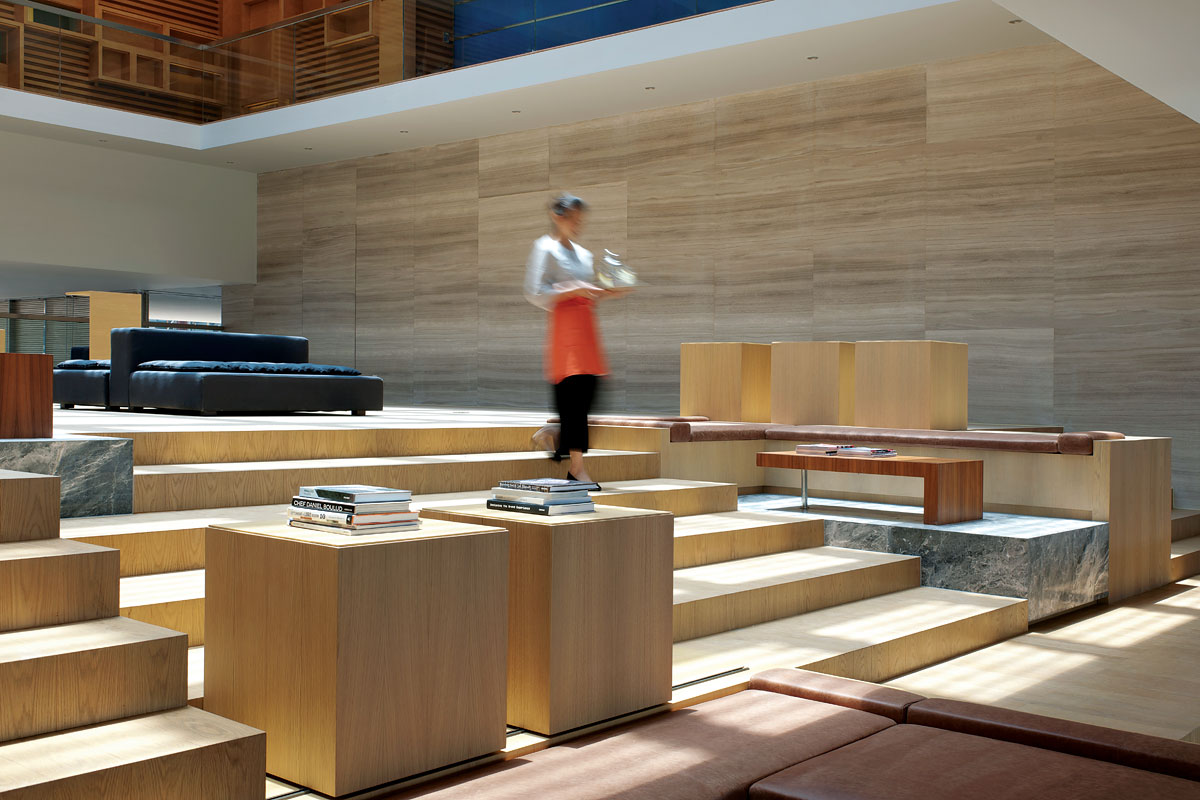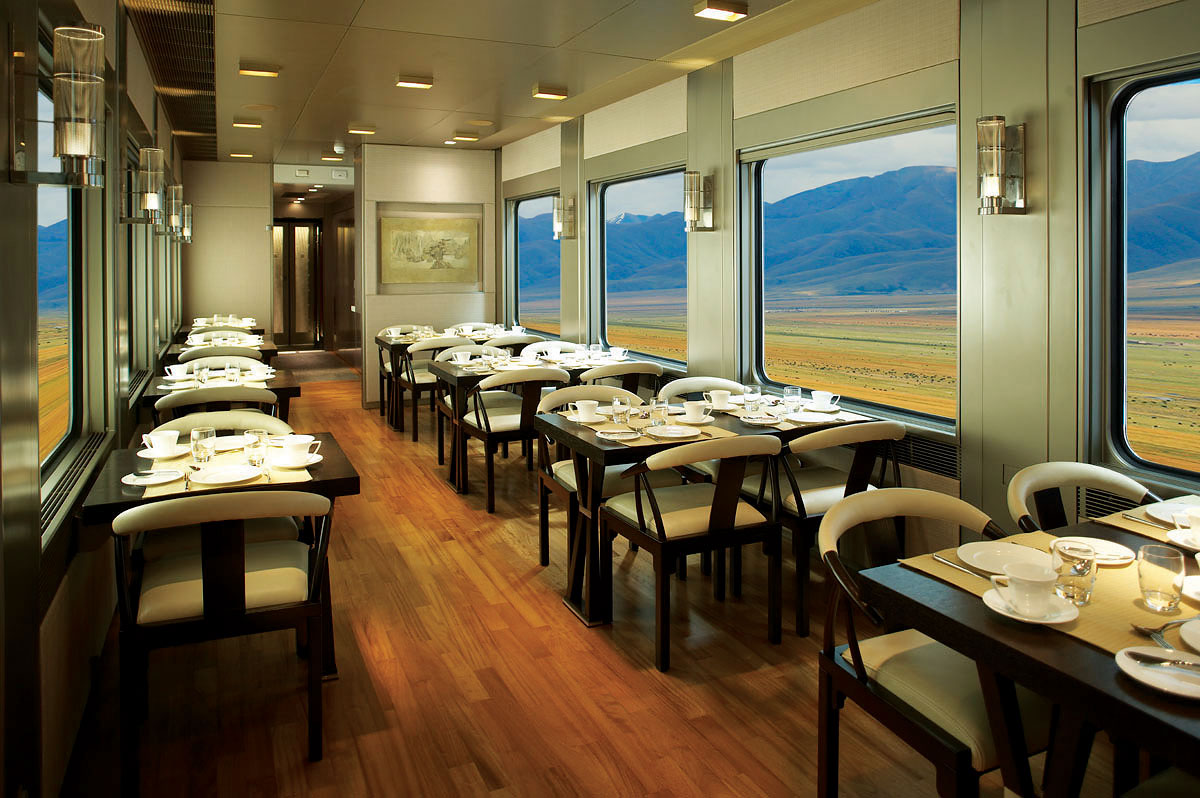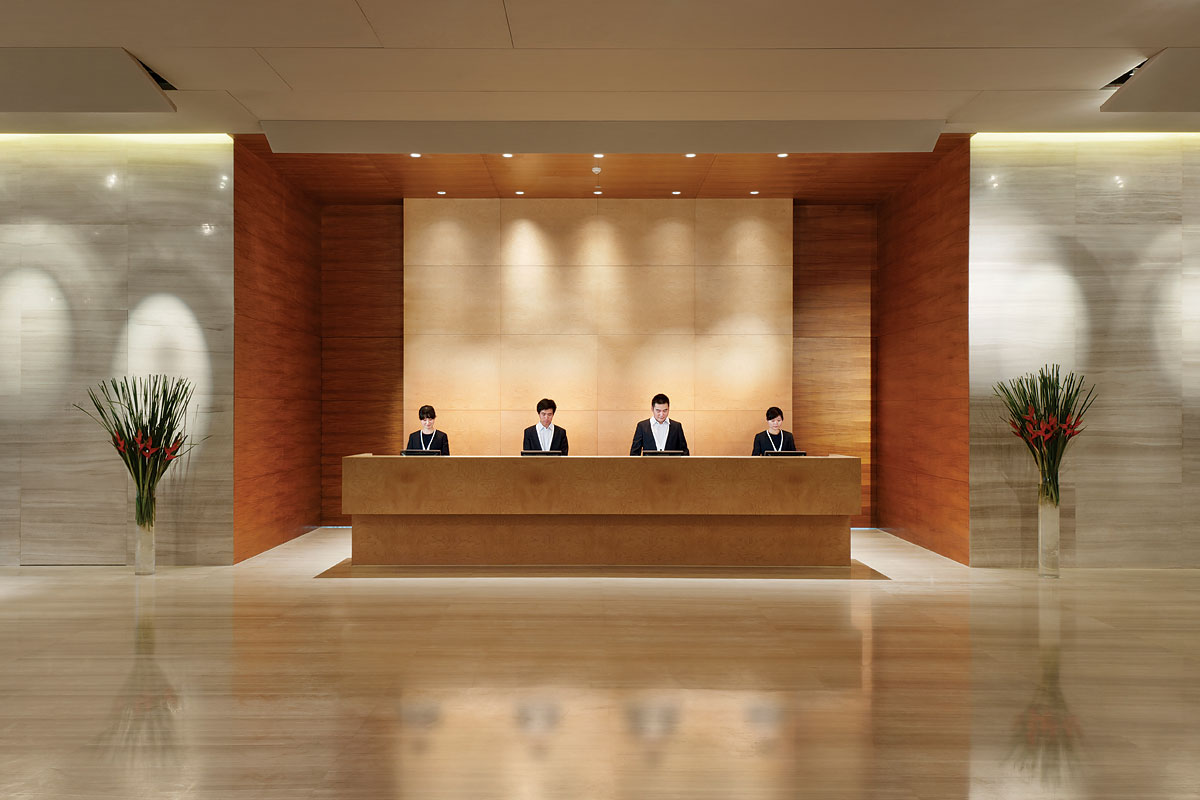Embracing the Changing Culture of China
An alumnus returns to China to ride its astonishing wave of economic growth.
When Leslie Shih ’90 arrived on the Vassar campus for his freshman year, he planned to major in economics and eventually land a job on Wall Street. Those plans took an abrupt turn one day about a year later as Shih sat in a darkened auditorium in an art history class in which he wasn’t even enrolled—a moment he calls “my epiphany.”

“One of my buddies invited me to sit in on a lecture on [ancient Egyptian] Queen Hatshepsut’s Mortuary Temple at Deir el-Bahari,” he recalled. “The moment the slide hit the screen, I was completely awed by [the temple’s] grandeur and the way it interacted with the site.”
The journey that started in that classroom has taken Shih halfway around the world to his native Hong Kong, where he is creating architectural works of his own, designing and building one-of-a-kind boutique hotels as well as a luxury train project.
It began when he designed his own urban studies major at Vassar, then went to Princeton University School of Architecture. He later landed a job with the architectural firm of Pei Cobb Freed & Partners, the successor firm of world-renowned architect I. M. Pei.

It was during his stint with that firm, while working on a project in Shanghai in 1997, that Shih began to think about returning to China, and the rapid economic boom in Asia helped to convince him.
Three years later, he accepted a job teaching architecture at a school in Taiwan. Not only did he enjoy his interaction with the students, Shih says, he also began to learn the subtle interactions that take place in the Asian business world.
In the West, he says, people in business often gather information about potential associates by conducting routine background checks on their credit history and business practices. But in Asia, Shih says, picking a potential business partner has much more to do with a series of negotiations and a testing of limits.
Shih attributes some of these business practices to the rapidly changing culture in modern China: “[It] has seen its social and moral values fractured by decades of political turmoil, and the resultant cynicism runs so deeply that people choose to go the extra mile before a commitment is made,” he says.
Over the past five years, Shih has used his knowledge of Asian business practices and his background in architecture to launch a successful Hong Kong-based firm, SL Partnership Hotel Services Limited.
He has built the Xixuan Spa Hotel in Zhejiang province that includes a library, original artwork, and a gourmet restaurant. The first of its kind in China, the spa offers a wide range of cutting-edge treatments “for those who are exhausted by 30 years of non-stop growth in China,” Shih jokes.

He has also restored a building in Hebei province that was once the private reading room of eighteenth-century Emperor Qianlong. And he is currently putting the finishing touches on a modern interpretation of traditional Chinese courtyard houses for a hotel in Anhui province.
Shih is also beginning design work on a hotel in downtown Beijing “that will rival the best of what European small and luxury hotels are offering.”
While all of these successes have been gratifying, Shih says the project dearest to his heart is one that has yet to see fruition—a venture called the Tangula Train.
Seven years ago, he met management consultants Ben Tsen and Josh Brookhart, who had conceived the idea of building a luxury train that would run the length of China and into the mountains of Tibet.
By early 2008, Shih had designed and built the trains, and the first state-of-the-art railcars were ready to be tested. But when an uprising took place in Tibet in March of that year, plans for the train were halted. The project has seen further setbacks as Shih negotiates with government officials over materials being used in the trains that must be compatible with an oxygen enrichment system necessary for the climb into the Tibetan mountains. The trains have been sitting idle in a rail yard for nearly four years.
But Shih says, “Life goes on. Setbacks are part of growing up, and we build self-awareness through this process. As long as you believe in your ideas, then you patch the holes and soldier on.”